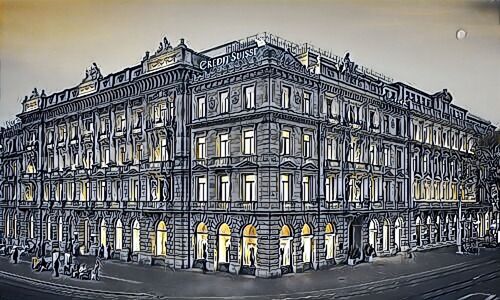6. Investment Banking and Capital Markets
When Thiam in 2015 divided the investment into two, it seemed obvious that the advisory (investment banking and capital markets) would outperform the trading activities in global markets.
The traders, which previously had enjoyed a high prestige were badly affected by Thiam’s cuts. Investment banking by contrast had a low demand for capital and was supposed to generate services for the coveted super-rich in the U.S. The view was upheld through the end of 2018. Global markets was delivering losses, while IBCM generated profits.
In his last year, IBCM had a loss of 162 million francs. Its new boss, David Miller, must now revive the business.
7. Stock Price
When Thiam assumed the reigns of the bank in July 2015, the stock increased and reached a level of 28.94 francs, a five-year high. But shareholders' joy was short-lived: the long-term decline continued even under CEO Thiam. Today, at his second-from-last working day, the share is worth some 13 francs, less than half the record of a few years ago.
The stock started to plunge in 2008 during the financial crisis. It had been worth 96 francs before this historic drop began. The low-point also was reached under Thiam – the 9.75 francs of mid-2016 was about a tenth of what it was worth only eight years earlier.
8. Net New Money
When Thiam joined in 2015, markets were in turmoil because of the euro- and refugee crises. The bank later reported outflows amounting to 50 billion francs and assets under management of 1.3 trillion francs.
Today, the bank has 1.5 trillion francs in assets under management, a record that is also a consequence of last year’s success. Credit Suisse received 79.3 billion francs in net new money. By way of comparison: VP and Mirabaud private banks in mid-2019 together had about an equal amount under management as of mid-2019.
- << Back
- Page 3 of 3




































